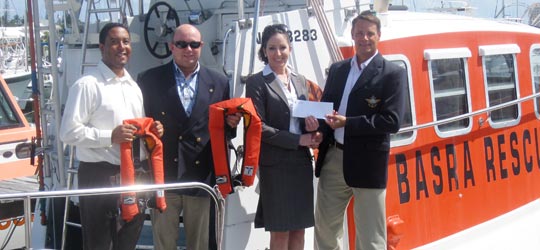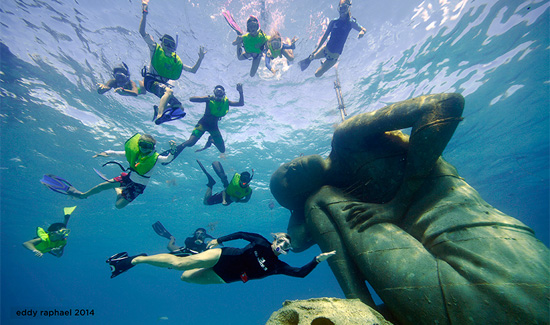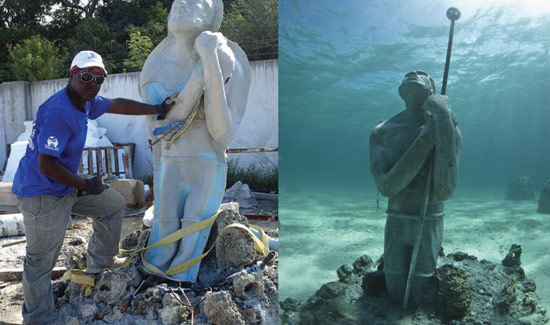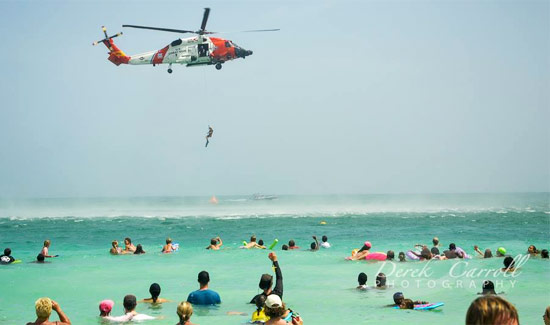
The Bahamas Air Sea Rescue Association has made it its mandate to save persons in distress on the sea. Solely manned and operated by volunteers, BASRA, a dedicated non-profit organization, has saved many lives and been involved in thousands of rescues.
Coordinating the search and rescue of survivors of emergency water landings as well as people who have survived the loss of their sea-going vessel, the Bahamas Air Sea Rescue Association is committed to saving the lives of distressed seamen or airmen in the Bahamas.
On a given day BASRA receives numerous calls for assistance, many from un-sea worthy vessels and persons whose vessels have run into trouble and attempted to swim to shore. Always ‘on-duty’ and ready to help, 24 hours a day, seven days a week, equipped with boats, planes and communications, BASRA is the only search and rescue organization in The Bahamas. Even more awe inspiring is the fact that all of the staff are volunteers who carry out their duties without compensation.
Donations are an extremely important part of the contributions that BASRA depends on to function and maintain its service in Bahamian waters. BASRA does not ask for compensation for their life saving missions which incur many expenses. Much of the financial support to the organization comes via donations from all sectors of the community. They need our assistance to keep afloat. Annual contributions make a huge difference to the running of their operation.
The BASRA Ball, slated this year for Saturday November 6, 2010 at the Old Fort Club. Although the major fundraising effort for the Association, proceeds do not generate enough funds to cover expenses, leaving the organization to depend on the help of corporate partner. One such partner for many years has been Doctors Hospital, who recently presented the Association with a check to assist with rescue missions.
“We make a sizeable donation to BASRA each year in support of the tremendous job that they do at sea. We are aware that money for rescue efforts, fuel, radios, boats, life-saving equipment and their maintenance; the upkeep of their headquarters, etc. can be quite expensive. By adding to their fundraising efforts, we can ensure that BASRA is equipped to continue to provide life-saving emergency assistance to those persons in distress and/or stranded at sea” stated Michele Rassin, Vice President of Operations, Doctors Hospital.
Their next mission may SAVE you. You can help by volunteering your services, becoming a BASRA member or by forwarding your donation to Bahamas Air-Sea Rescue Association, PO Box SS 6247, Nassau, Bahamas. Any funds you are willing to give will be gratefully accepted.
Here are live saving tips from The Bahamas Air Sea Rescue Association to keep you safe out at sea:
• File a Float Plan. Always let reliable people know where you are going and when you expect to return and stick to it. Stay in the general area you gave as a destination. Make sure he or she has the name and a full description of your boat (length, hull and deck color, number and make of engines if out-board, bimini top, outriggers, fly-bridge, towing dingy etc.) and the number of persons on board.
• Pre Departure Check. Always check the weather forecast before departure. Listen to the weather forecasts on any local radio stations. Check bildge pump, radio, anchor, and paddles etc. Consider a spare anchor and line.
• Know your fuel capacity and consumption at various speeds and loads. Always take enough fuel for the trip. If possible take an extra can of fuel. You may have to slow down in rough weather and take twice as long to reach your destination.
• Know your boat. Most newer vessels have a safety plate giving the total weight to be carried and maximum number of passengers and maximum horsepower. If you smell fuel, do not start the engine. If you are painting the bottom or putting on a canvas, consider a red color for easy rescue visibility. It is very difficult to see a blue and white boat in a blue and white ocean.
• Make sure all of your safety equipment is on board before departure – life jackets or life cushions, flashlight and flares, took kit, compass, manual bildge pump, first aid kit, fire extinguishers etc.
• Carry bottles of drinking water and food sufficient for all persons on board.
• In case of Emergency. The primary reason for capsize is over-loading or improper loading. It can happen also when broaching broadside to the waves in heavy weather. If your boat turns over, stay with the boat if it does not sink. Most small boats continue to float when turned over or fill with water. There is always the temptation to swim to shore, but, when you are in the water, you can not correctly judge the distance to shore. It is usually two or three times further than it looks. It is also far easier to see you holding on to a boat than to see a small person in the water. Have your lifejacket accessible at all times. Use your VHF radio to broadcast your distress giving an accurate location. If your radio is dead, you can split open a soda can and flash SOS using the sunlight.
Source: Doctors Hospital



